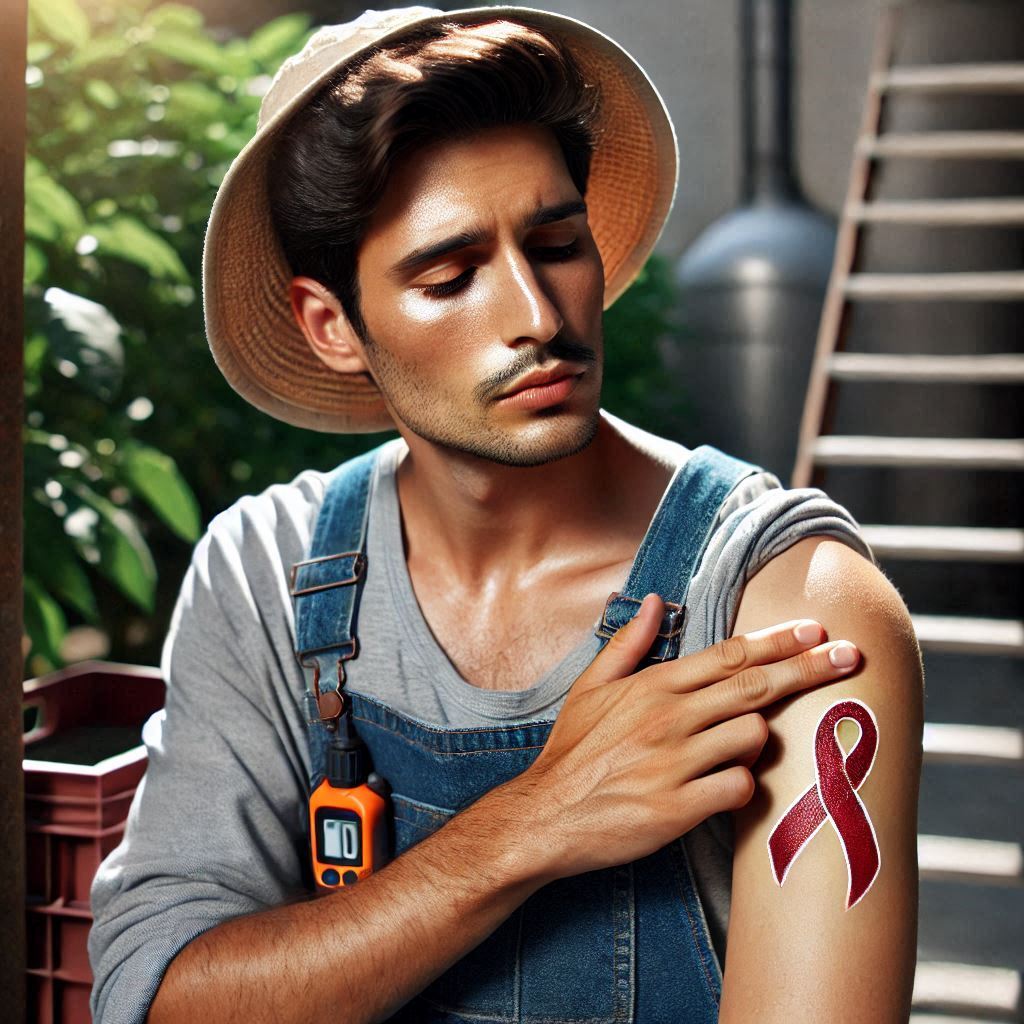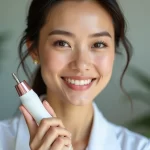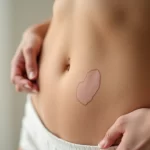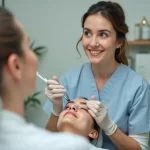Phoenix, Arizona, is better known for its hot summers, with common daily temperatures regularly outdoing 100°F. Although residents discover ways to manage the heat, particular groups are at enhanced risk from the sun’s abusive rays, most notably outdoor workers. From building laborers to landscapers and farming workers, persons who spend long hours in the sunlight are in greater danger of getting skin cancer. In this context, Skin Cancer Risk Assessments for outside Workers in Phoenix have an all-important aspect of workplace safety.
How do you understand the Skin Cancer Risk for Outdoor Workers?
Skin cancer is among the most prevailing cancers in Arizona and has among the highest rates of skin cancer in the state. The basic reason for skin cancer is ultraviolet radiation from the sun, which harms the skin cells and can lead to different kinds of skin cancer, such as melanoma, basal cell carcinoma, and squamous cell carcinoma.
Mobile Screening for Outdoor Professionals in Phoenix makes the need for Skin Cancer Risk Assessments for Outdoor Workers more crucial.
What is a Skin Cancer Risk Assessment?
A Skin Cancer Risk Assessment is an orderly rating planned to key out workers at a higher chance of getting skin cancer due to extended vulnerability to UV radiation. These assessments normally need a lot of factors, including assessing a worker’s history of sun vulnerability, analyzing their skin for signs of expected damage, and counting different risk factors such as family history or individual medical background.
These appraisals aim to identify expected risks before skin damage goes to more grievous consequences, such as cancer. Skin Cancer Risk Assessments for Outdoor Workers in Phoenix generally need the following steps:
Evaluating how long the worker passes outdoors every day, the kind of work they do, and the normal protective measures they use can allow useful insights into their risk level.
Medical experts might do skin screenings to find early skin damage signs, such as suntans, moles, or precancerous wounds. Dermatologists frequently do skin checks and are prepared to find early-stage skin cancer or insane skin growths.
Individualized factors specified as fair skin, light eyes, a history of suntans, and a family history of skin cancer can significantly step up the chance of getting skin cancer. These are nearly evaluated during the evaluation.
At one time the assessment is accomplished, and workers are trained on methods to protect their skin. This includes suggestions for careful clothing, sun blockers, and scheduling work hours to understate sun vulnerability during maximum UV radiation.
What is the Impact of the Sun in Phoenix?
The sun’s beams in Phoenix are particularly fierce due to the city’s geographical position. Phoenix is located in a desert area with minimal cloudiness, signifying outdoor workers are exposed to UV radiation for a lot of the year. To boot, the heat can lead to drying up and increase the odds of heat-related sicknesses. All the same, skin cancer risk remains the basic concern for outdoor workers who are perpetually exposed to the sunlight’s harmful rays.
Long-run UV vulnerability causes skin harm at the cellular level, which can be neglected for years. This delay in obvious symptoms signifies that a worker could pass years under the sunlight without exhibiting fast signs of skin cancer, making ahead-of-time detection all important for improving grievous outcomes.
What Skin Cancer Prevention and Protection are Available?
Among the key elements of Skin Cancer Risk Assessments for Outdoor Workers in Phoenix is prevention. Being aware of the dangers is insufficient; workers must be furnished with the instruments and knowledge to protect themselves from the sunlight’s adverse effects.
A few of the most efficient schemes for skin cancer prevention in outdoor workers include:
- Workers should apply a broad-spectrum sun blocker with an SPF of 30 or higher every two hours, particularly if they are sweating or working in the water. This helps block both UVA and UVB beams.
- Putting on hats, long-sleeved shirts, and dark glasses that bar UV rays can importantly bring down vulnerability. Clothing planned precisely for sunlight protection, frequently made with materials rated for ultraviolet light defense, is becoming more approachable.
- Where conceivable, workers had better be boosted to take breaks during top sun hours (commonly between 10 AM and 4 PM). This scheme understates how long they are brought out to the most terrible sunlight.
- Outdoor work surroundings had better include shaded lay-bies where workers can take shade from the sun. This assists in bringing down cumulative vulnerability to UV radiation.
- As part of current prevention, workers had better be boosted to conduct frequent self-exams for whatever changes in skin appearance, and employers had better offer yearly dermatological skin checkups to find ahead of-time signs of skin cancer.
What is the Role of Employers and Healthcare Providers?
Employers must ensure the safety and well-being of their outdoor workers. Carrying out Skin Cancer Risk Assessments for Outdoor Workers in Phoenix is an all-important part of this duty. By adopting an active approach, employers not only bring down the odds of skin cancer among their workforce but also exhibit that they care about their workers’ long-term wellness.
Healthcare providers, including dermatologists and basic care doctors, also play an essential function in these appraisals. They can propose expert skincare advice, conduct frequent skin checks, and assist key out early signs of skin damage before it becomes a grievous wellness issue.
What Phoenix Skin Safety Checks are Available?
Skin cancer remains among the most preventable yet basic forms of cancer among outdoor workers. In Phoenix, where sun vulnerability is intense year-round, Skin Cancer Risk Assessments for Outdoor Workers are all important for extenuating the dangers linked with UV radiation. With ahead-of-time detection, training, and preventive measures in situ, outdoor workers can carry on their all-important roles while safeguarding their wellness.
Employers and healthcare providers had better prioritize these appraisals as part of their dedication to worker safety and wellbeing. If you are an employer or worker in Phoenix, do not wait till it is too late to ensure you are proactive about skin cancer prevention. Book your Phoenix Skin Safety Checks now and protect yourself or your workforce from the abusive effects of the sunlight.
FAQs:
Q: Why are outdoor workers at higher risk for skin cancer?
A: Outdoor workers have a higher chance of skin cancer due to long vulnerability to abusive ultraviolet (UV) radiation from the sunlight. This steady sunlight vulnerability increases the odds of skin harm, including suntans and skin aging, which can lead to cancer over time. In addition, outdoor workers frequently pass long hours during peak UV radiation hours without enough protection, further elevating their risk.
Q: How are skin cancer risk assessments conducted?
A: Skin cancer risk assessments are carried out by assessing a worker’s sunlight exposure history, individualized risk elements, and previous skin damage. A complete skin test is executed to check for insane moles, wounds, or signs of skin cancer. The assessment also includes training the worker on prevention schemes such as sun blocker use, protective clothing, and regular skin checks.
Q: What can outdoor workers do to protect their skin?
A: Outdoor workers can protect their skin by putting on protective clothing specified as hats, long-sleeved shirts, and UV-blocking dark glasses. They had better apply broad-spectrum sun blockers with an SPF of 30 or higher on a regular basis, particularly when brought out to the sunlight. Additionally, workers can take breaks in the shade and arrange work hours to avoid maximum sun vulnerability between 10 AM and 4 PM.





